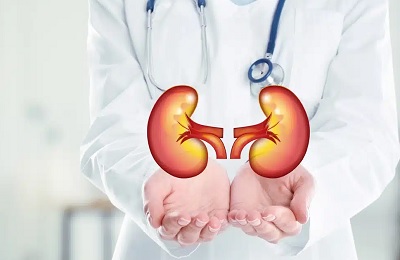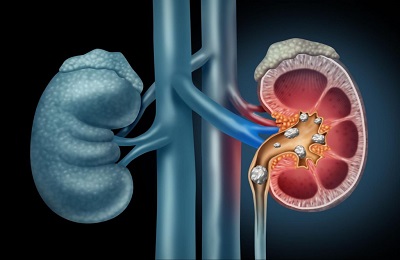Session 01: Precision Medicine in Kidney Care
This session explores how precision medicine is reshaping nephrology with individualized diagnosis, treatment, and prevention strategies. Experts will highlight the role of genomics, proteomics, metabolomics, and AI in tailoring therapies for kidney diseases, from CKD to rare disorders. Discussions will cover genetic markers for early detection, pharmacogenomics, predictive models, personalized dialysis, and transplant matching, along with ethical and cost considerations. Real-world case studies will showcase how precision nephrology improves outcomes and advances patient-centered kidney care.
Session 02: Artificial Intelligence in Nephrology
This session explores the impact of AI in nephrology, showcasing how machine learning and deep learning improve CKD prediction, dialysis outcomes, and patient risk assessment. Highlights include AI-driven imaging, decision-support systems, and big data integration from health records and wearables. Case studies will illustrate improved diagnostics, efficiency, and early interventions. Challenges such as data privacy, algorithm bias, and regulations will also be discussed, with insights into future directions for advancing precision medicine.
Session 03: Wearable & Artificial Kidney Devices
This session will explore the latest innovations in wearable and artificial kidney technologies that aim to transform renal replacement therapy. Experts will highlight breakthroughs in portable dialysis machines, wearable artificial kidneys, and implantable bioengineered devices designed to enhance mobility, safety, and patient independence. Key topics include miniaturization of dialysis systems, advances in biocompatible materials, and integration of biosensors for continuous monitoring of kidney function. Attendees will also learn about ongoing clinical trials, regulatory challenges, and real-world applications of these devices in managing end-stage renal disease (ESRD). By showcasing cutting-edge prototypes and success stories, the session will provide a forward-looking perspective on how wearable and artificial kidney devices can improve quality of life, reduce hospital dependency, and redefine the future of kidney care.
Session 04: Nanomedicine & Nanosensors in Kidney Disease
This session will explore cutting-edge developments in nanomedicine and nanosensor technologies aimed at revolutionizing kidney disease diagnosis and treatment. Experts will discuss nanoparticle-based targeted therapies, nanoscale imaging techniques, and real-time biosensors capable of detecting early markers of kidney injury. Key topics include precision drug delivery, integration of nanosensors with wearable devices for continuous monitoring, and advances in biocompatible materials. Attendees will gain insights into how these technologies can enhance early detection, improve therapeutic efficacy, and reduce systemic side effects. The session will also cover ongoing clinical trials, regulatory challenges, and potential real-world applications, providing a forward-looking perspective on personalized and minimally invasive kidney care.
Session 05: Tropical Nephropathies
This session will focus on kidney diseases that are prevalent in tropical and subtropical regions, emphasizing their unique epidemiology, pathophysiology, and clinical management. Experts will discuss environmental, infectious, and genetic factors contributing to conditions such as tropical nephropathy, leptospirosis-associated kidney injury, and malaria-related renal dysfunction. Key topics include diagnostic challenges, region-specific treatment protocols, and preventive strategies tailored to resource-limited settings. Attendees will gain insights into global disparities in kidney health, innovative approaches for early detection, and interventions designed to reduce morbidity and mortality. The session will provide a comprehensive perspective on addressing tropical nephropathies through clinical, public health, and research strategies.
Session 06: Home-Based & Smart Dialysis Innovations
This session will highlight the latest advancements in home-based dialysis and smart technologies designed to enhance patient autonomy and quality of life. Experts will discuss wearable and portable dialysis systems, AI-assisted treatment optimization, and automated monitoring platforms that allow for real-time tracking of patient health. Key topics include remote supervision, personalized dialysis protocols, integration of biosensors, and strategies to improve adherence and clinical outcomes. Attendees will learn about regulatory considerations, implementation challenges, and real-world applications, gaining insights into how smart and home-based dialysis solutions are transforming renal care by reducing hospital dependency and enabling patient-centered management.
Session 07: AI-Guided Vascular Access Planning
This session will explore the transformative role of artificial intelligence in planning and managing vascular access for patients requiring dialysis. Experts will highlight AI-driven algorithms that predict access maturation, detect early complications, and optimize surgical and interventional strategies. Key topics include imaging-based predictive models, integration with electronic health records, and real-time analytics to guide clinical decision-making. Attendees will learn how AI can enhance precision, reduce procedural risks, and improve long-term outcomes for dialysis patients. The session will also cover implementation challenges, regulatory considerations, and real-world case studies demonstrating the impact of AI-guided vascular access on patient care and workflow efficiency.
Session 08: Advanced Robotic Surgery in Urology
This session will explore the latest advancements in robotic-assisted surgery for urologic procedures, highlighting precision, safety, and improved patient outcomes. Experts will discuss minimally invasive techniques for prostatectomy, nephrectomy, and reconstructive surgeries, emphasizing enhanced visualization, dexterity, and reduced complications. Key topics include integration of AI for surgical planning, next-generation robotic instruments, and intraoperative guidance systems. Attendees will gain insights into clinical outcomes, training innovations, and strategies for optimizing workflow in robotic urology. The session will provide a forward-looking perspective on how robotic surgery is transforming urologic care and shaping the future of minimally invasive interventions.
Session 09: 3D Printing for Surgical Planning
This session will explore the innovative use of 3D printing technology in urology and nephrology surgical planning. Experts will discuss the creation of patient-specific anatomical models, surgical guides, and implantable devices that enhance precision and procedural outcomes. Key topics include preoperative planning, customization of prosthetics, integration with imaging technologies, and simulation-based surgical rehearsal. Attendees will learn how 3D printing can reduce operative risks, improve patient outcomes, and streamline complex surgical workflows. The session will also cover practical implementation strategies, cost considerations, and real-world applications demonstrating the transformative potential of additive manufacturing in urologic and renal surgery.
Session 10: Robotic Andrology Procedures
This session will focus on the application of robotic-assisted techniques in male reproductive and urologic surgery. Experts will discuss procedures such as robotic-assisted vasovasostomy, varicocelectomy, and prostate interventions, emphasizing precision, reduced morbidity, and enhanced recovery. Key topics include AI-guided surgical planning, minimally invasive approaches, and integration with imaging technologies for improved outcomes. Attendees will gain insights into training pathways, clinical efficacy, and real-world case studies that demonstrate how robotic andrology is advancing surgical care, improving functional outcomes, and enhancing patient
Session 11: Telemedicine & AI Diagnostics in Urology
This session will explore the integration of telemedicine and artificial intelligence in urologic diagnostics and patient care. Experts will discuss remote monitoring, AI-assisted imaging analysis, and predictive algorithms for early detection of urologic conditions. Key topics include workflow integration, patient engagement strategies, data security, and regulatory considerations. Attendees will gain insights into how digital tools can enhance access to care, reduce diagnostic delays, and support precision medicine in urology. The session will also highlight real-world applications, best practices for implementation, and the potential of AI-driven telehealth to transform clinical decision-making and patient outcomes.
Session 12: Next-Gen Urodynamics & Laser Technologies
This session will explore cutting-edge advancements in urodynamic testing and laser-based therapies for
urologic disorders
. Experts will discuss high-resolution urodynamics, minimally invasive laser interventions, and precision-guided treatments for conditions such as benign prostatic hyperplasia, urinary incontinence, and bladder dysfunction. Key topics include enhanced diagnostic accuracy, patient comfort, workflow efficiency, and clinical outcomes. Attendees will gain insights into how next-generation urodynamic tools and laser technologies are transforming the diagnosis and management of urologic conditions, improving procedural precision, and enhancing overall
patient care
.
Session 13: Reconstructive Urology & Andrology Integration
This session will highlight the intersection of reconstructive urology and andrology, focusing on comprehensive approaches to male urinary and reproductive health. Experts will discuss surgical innovations, tissue engineering, and multidisciplinary strategies for managing complex urologic conditions. Key topics include patient-specific reconstruction, functional and cosmetic outcomes, and integration of regenerative techniques. Attendees will gain insights into best practices for combining reconstructive and andrologic procedures, enhancing patient quality of life, and applying innovative surgical techniques in clinical practice. The session will provide a holistic perspective on integrated care models that address both functional restoration and reproductive health.
Session 14: Oncologic Urology: Focal Therapy & Immunotherapy
This session will focus on emerging treatments in urologic oncology, emphasizing focal therapies and immunotherapy for prostate, kidney, and bladder cancers. Experts will discuss minimally invasive ablation techniques, personalized immunotherapeutic strategies, and biomarker-driven patient selection. Key topics include treatment efficacy, clinical trial evidence, long-term outcomes, and integration of novel therapies into standard care. Attendees will gain insights into how these cutting-edge approaches are transforming cancer management, offering targeted, organ-sparing options, and improving patient survival and quality of life. The session will provide a forward-looking perspective on the future of oncologic urology.
Session 15: Biomarkers for Early Detection in Kidney & Bladder Diseases
This session will explore the discovery and clinical application of novel biomarkers for the early detection and monitoring of kidney and bladder diseases. Experts will discuss molecular, genetic, and imaging-based biomarkers, highlighting their diagnostic and prognostic potential. Key topics include biomarker validation, integration into clinical workflows, and their role in guiding personalized treatment strategies. Attendees will gain insights into how biomarker-driven approaches can enable early intervention, improve patient outcomes, and support precision medicine in nephrology and urology. The session will also cover ongoing research, regulatory considerations, and real-world case studies demonstrating the impact of biomarkers on clinical practice.
Session 16: Telemedicine & Remote Monitoring in Renal and Urologic Care
This session will highlight the role of telemedicine and remote monitoring technologies in managing kidney and urologic conditions. Experts will discuss wearable devices, mobile health platforms, and AI-assisted analytics for continuous patient evaluation and early intervention. Key topics include patient engagement, adherence monitoring, data integration, and regulatory considerations. Attendees will learn how remote care solutions can enhance access to healthcare, reduce hospital visits, and support personalized management strategies. The session will also cover practical implementation, case studies, and innovative approaches to delivering high-quality, patient-centered care in nephrology and urology.
Session 17: Tissue Engineering & Regenerative Urology
This session will explore the latest advances in tissue engineering and regenerative medicine for urologic reconstruction and repair. Experts will discuss bioengineered scaffolds, stem cell therapies, organoid models, and regenerative techniques aimed at restoring urinary tract function. Key topics include translational research, preclinical models, and clinical applications for complex urologic conditions. Attendees will gain insights into how regenerative strategies can improve functional outcomes, reduce surgical morbidity, and offer personalized solutions for patients with congenital, traumatic, or disease-related urologic deficits. The session will provide a forward-looking perspective on the future of reconstructive and regenerative urology.
Session 18: Large Language Models (LLMs) in Urology Education & Diagnostics
This session will explore the transformative role of large language models (LLMs) in urology education, clinical decision support, and diagnostics. Experts will discuss AI-driven knowledge synthesis, automated case review, and patient communication tools that enhance learning and clinical workflows. Key topics include model training, ethical considerations, integration with electronic health records, and evidence-based decision-making support. Attendees will gain insights into how LLMs can improve medical education, streamline diagnostics, assist in complex case evaluation, and support precision care in urology. The session will also showcase real-world applications and best practices for implementing AI tools in clinical practice.
Session 19: Global Health Challenges in Kidney Care
This session will address the worldwide burden of kidney disease and strategies to improve outcomes across diverse populations. Experts will discuss epidemiology, access to care, healthcare disparities, and policy initiatives aimed at reducing the global impact of renal diseases. Key topics include preventive strategies, resource optimization, public health interventions, and international collaboration. Attendees will gain insights into socio-economic, environmental, and healthcare system factors influencing kidney health, as well as innovative approaches to improve screening, early detection, and patient management. The session will provide a comprehensive perspective on tackling global kidney health challenges through research, policy, and clinical innovation.






